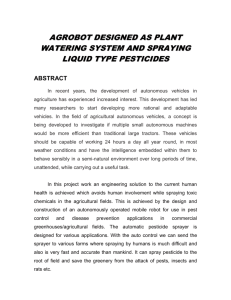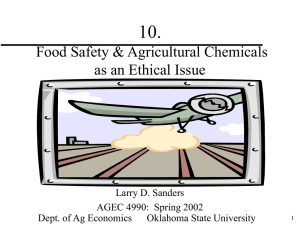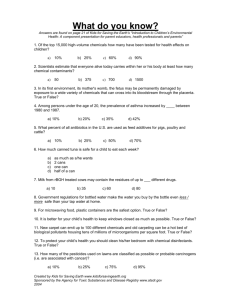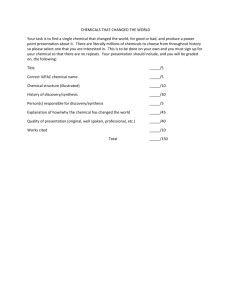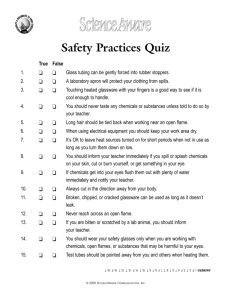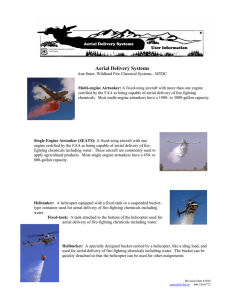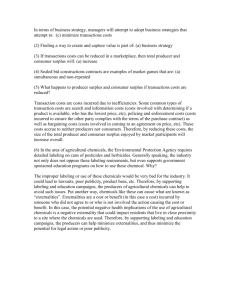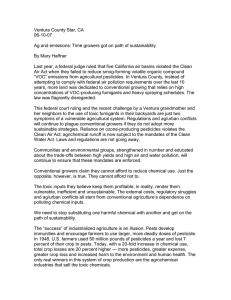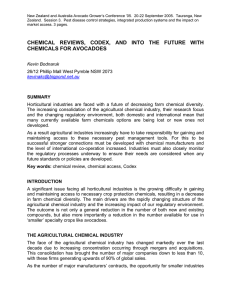Microsoft Word - Document1 - Department of Agriculture and Food
advertisement
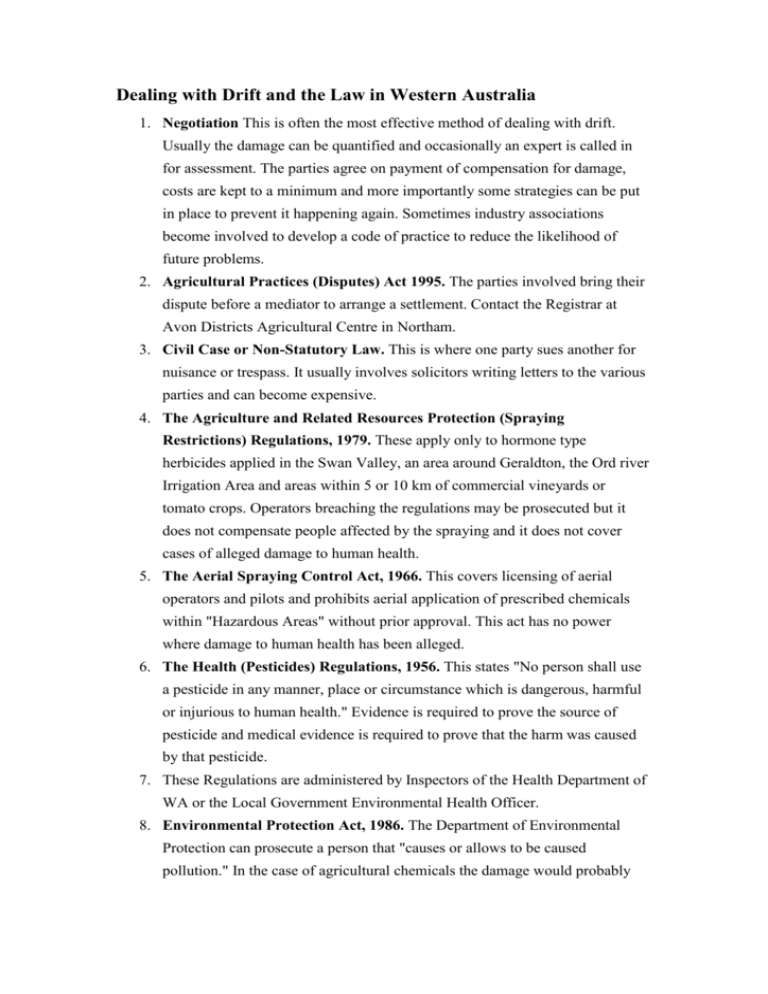
Dealing with Drift and the Law in Western Australia 1. Negotiation This is often the most effective method of dealing with drift. Usually the damage can be quantified and occasionally an expert is called in for assessment. The parties agree on payment of compensation for damage, costs are kept to a minimum and more importantly some strategies can be put in place to prevent it happening again. Sometimes industry associations become involved to develop a code of practice to reduce the likelihood of future problems. 2. Agricultural Practices (Disputes) Act 1995. The parties involved bring their dispute before a mediator to arrange a settlement. Contact the Registrar at Avon Districts Agricultural Centre in Northam. 3. Civil Case or Non-Statutory Law. This is where one party sues another for nuisance or trespass. It usually involves solicitors writing letters to the various parties and can become expensive. 4. The Agriculture and Related Resources Protection (Spraying Restrictions) Regulations, 1979. These apply only to hormone type herbicides applied in the Swan Valley, an area around Geraldton, the Ord river Irrigation Area and areas within 5 or 10 km of commercial vineyards or tomato crops. Operators breaching the regulations may be prosecuted but it does not compensate people affected by the spraying and it does not cover cases of alleged damage to human health. 5. The Aerial Spraying Control Act, 1966. This covers licensing of aerial operators and pilots and prohibits aerial application of prescribed chemicals within "Hazardous Areas" without prior approval. This act has no power where damage to human health has been alleged. 6. The Health (Pesticides) Regulations, 1956. This states "No person shall use a pesticide in any manner, place or circumstance which is dangerous, harmful or injurious to human health." Evidence is required to prove the source of pesticide and medical evidence is required to prove that the harm was caused by that pesticide. 7. These Regulations are administered by Inspectors of the Health Department of WA or the Local Government Environmental Health Officer. 8. Environmental Protection Act, 1986. The Department of Environmental Protection can prosecute a person that "causes or allows to be caused pollution." In the case of agricultural chemicals the damage would probably have to be widespread, serious or irreversible for prosecution to be implemented. 9. Registration of Chemicals. The National Registration Authority is reviews and set conditions on the use of agricultural chemicals. When used in accordance with these directions no adverse effect on human health or the environment is expected. The Authority has the power to prosecute operators that breach these conditions. It may also be approached if you have a good, scientifically based case for changing the way agricultural chemicals are used. The above is a general guide and legal advice from a qualified lawyer should be sought for specific situations. References.
